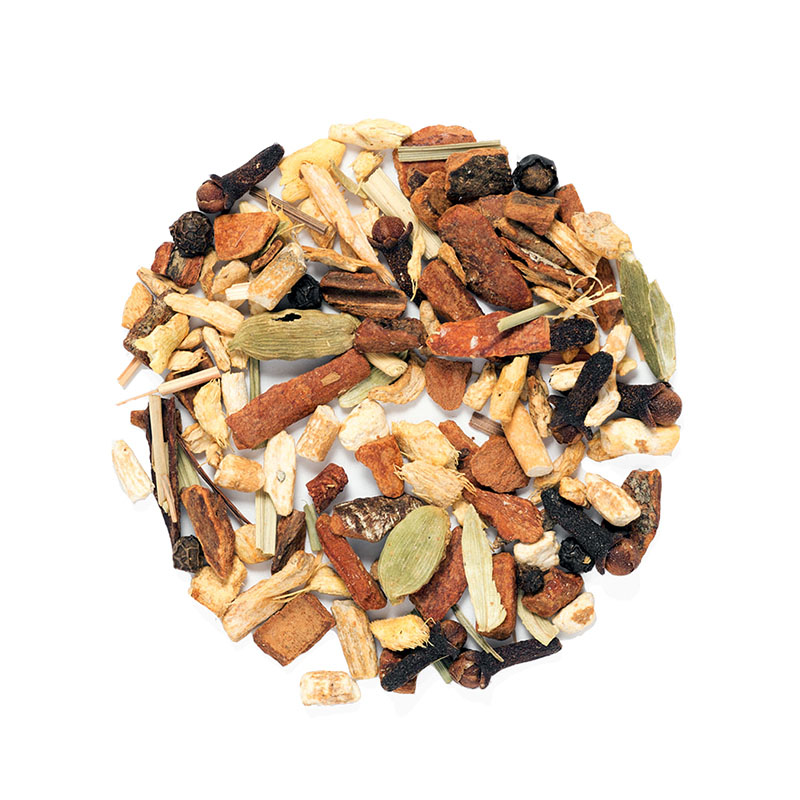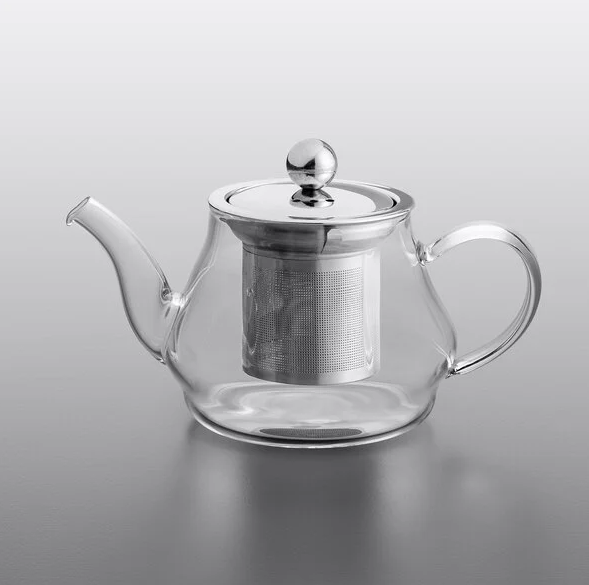Ashwagandha Tea Benefits Guide
This post may contain affiliate links. Simple Loose Leaf is a participant in the Amazon Associates Program, an affiliate advertising program designed to provide a means for sites to earn advertising fees by linking to Amazon.com. There are many herbal teas, but only a few adaptogenic ones. Ashwagandha is one of them. Maybe you have never heard of this tea, and you are not alone. It’s less famous than the world known tulsi tea, but nonetheless, as amazing as other adaptogenic plants.
What is Ashwagandha?
Ashwagandha, Withania somnifera or a winter cherry is a flowering bush mostly growing in India. Another interesting name for Withania somnifera is the Indian ginseng. Even though these two plants belong to a completely different botanical family, what Korean ginseng represents and promotes in Korea, Indian ginseng represents and promotes in India–wellbeing and longevity. Ashwagandha may provide powerful benefits for both body and mind[1]. In Ayurvedic medicine, this adaptogenic plant is called a rejuvenator or Rasayana. Ashwagandha has been used as a remedy for different illnesses for thousands of years–even longer than Camellia sinensis tea. It was first mentioned in Ayurveda, the traditional Indian medicine, about 6000 years ago[2] and it still didn’t lose any of the popularity. And, for a reason. Ashwagandha plant belongs to a group of adaptogens or plants, herbs and roots that may help naturally deal with all types of acute and chronic stress. Although different parts of the plant are edible, for medicinal purposes only the root is used. Ashwagandha is available as a supplement, in powdered form or as dry root. Dry root is often a part of adaptogenic tea blends. It may provide numerous benefits and may even be a good alternative for a caffeinated morning energy boosting drink.Flavor profile
As many healthy herbs, ashwagandha is bitter too. Aroma is often described as “horsey[3]”. In fact, the word ashwagandha means “odor of horse” describing the scent of the roots[4]. Bitterness and pungent aroma are also a reason this plant is mostly taken as a supplement or in powdered form, rather than as a tea. However, blended with other herbs, especially those commonly used in Ayurveda and with strong and pleasant flavors, ashwagandha will be much less noticeable and may show very little bitterness. Try blending it with cardamom, cloves and ginger, and add a teaspoon of honey if needed.Health Benefits of Ashwagandha
The main potential health benefit of ashwagandha is improving resistance to stress and the overall quality of life and promoting youthfulness. It’s considered generally safe,[5] but rare side effects may include nausea and diarrhea[6]. Although this plant is generally safe, avoid long-term use of more than 2 months as there is still not enough evidence on all potential side effects. Avoid ashwagandha if pregnant, as studies showed that very high doses may potentially be very dangerous[7]. Ashwagandha has anti inflammatory, antioxidant and immunomodulatory properties,[8] may be very beneficial for the nervous system[9] and promoting heart health[10]. Some potential benefits are:1. Reducing stress
Ashwagandha has been used as a nerve tonic for thousands of years. Studies showed that in high concentrations over a period of 2 months, ashwagandha extract may significantly reduce cortisol levels[11] and may even help with severe stress. Cortisol is often called a stress hormone, and high levels may negatively influence body functions and cause some psychological disorders[12]. Ashwagandha may have an impact on thyroid hormone and normalise the thyroid in hypothyroidism[13].2. Reducing anxiety and depression
Human study showed that ashwagandha may not only reduce the cortisol levels, but help reduce anxiety and depression as well. In a 60-day, randomized, double-blind, placebo-controlled study, ashwagandha was able to significantly reduce both of them, compared to the placebo group[14]. However, don’t take it with other medicine for treating depression or anxiety as it may increase the effect of antidepressants.3. Reducing fatigue and increasing physical endurance
Except relieving stress, ashwagandha may help reduce fatigue as well. This adaptogenic plant may provide stimulating and anti-fatigue effect by reducing exhaustion caused by stress[15]. It may help significantly increase physical endurance, even up to 100%[16]. If you are looking to increase energy, but don’t want to drink caffeinated teas, ashwagandha may be a great alternative.4. Boosting immune system
Ashwagandha has antioxidant and anti inflammatory properties. It may reduce oxidative stress and may help protect cells from free radicals[17]. Oxidative stress may cause cell damage or cell death[18] and cause many diseases. Ashwagandha may also help with autoimmune diseases, such as rheumatoid arthritis[19].5. Improving fertility
It’s believed ashwagandha may benefit the reproductive system[20] and help improve fertility in infertile men and women.[21] Furthermore, it may act as an aphrodisiac[22]. However, more research is needed to back up these claims.6. Promote longevity
Studies showed that ashwagandha has a potential to increase telomerase activity and provide and anti-aging effect[23]. It may help maintain the length of telomeres, endings on chromosomes that become shorter as we age and protect chromosomes from degradation[24].7. Protecting the brain
Ashwagandha may help with inflammation in the brain too. It may promote the healthy aging of the brain[25] and support healthy brain function. Therefore, it may be useful in treating dementia. Alzheimer’s disease, Parkinson’s, Huntington’s[26], and bipolar disorder[27].8. Protecting digestive system
Studies showed that ashwagandha may help to protect stomach from stress induced ulcers[28].9. Anti-cancer properties
Studies showed that ashwagandha may help with some type of tumors by preventing their growth. It may be beneficial in treating symptoms of anti-cancer drugs[29] and thus minimise the negative effects of chemotherapy.[30]10. Promoting sleep
Ashwagandha is one of those herbs that may provide benefits for the overall health. In addition to promoting energy and endurance, studies showed that ashwagandha may promote healthy sleep as well[31]. Studies showed that the dose of 300 mg twice a day may help treat insomnia and improve the quality of sleep[32]. In fact, many ashwagandha recipes are created to provide a soothing and sleep improving properties, and often include milk and honey.How to Make this tea
To make ashwagandha tea you can use either dried or fresh root or dried root powder. Keep in mind that root powder will give a more intense flavor. However, you may be able to mix it with other ingredients and blend into a smoothie or latte. If you are using dried root, choose small broken pieces. If needed, you can always grind them into a powder yourself. Root pieces look very similar to dried ginger root pieces. Simmer the root in boiling water for 5-15 minutes. Use about one teaspoon per cup of water. You can add other spices into the blend, too, to improve the flavor and add extra benefits.
Vedic (healer) tea with ashwagandha
Ashwagandha for sleep
Ashwagandha is often used for making sleepy time lattes because of its sleep-inducing properties. Powder will blend well with milk and other spices and can promote a better sleep. To make ashwagandha latte, you will need ashwagandha root powder, milk and honey. You can heat the milk over the stove, add 1 teaspoon of powder per cup of milk and use a hand blended to mix and froth it. Let it cool for a few minutes before adding honey. If this simple recipe is too simple, spice it up as you wish. Cinnamon, vanilla, cocoa–will all work well. If you don’t drink regular milk, replace it with a non-dairy milk, such as coconut, macadamia, almond or others. Read more about adaptogenic teas and Ayurveda.Disclaimer: This article is for informational purposes only. It’s not intended to replace medical advice, diagnosis or treatment. Every person is different and may react to different herbs and teas differently. Never use teas or herbs to treat serious medical conditions on your own. Always seek professional medical advice before choosing home remedies.
References:
[1] https://www.ncbi.nlm.nih.gov/pmc/articles/PMC6827862/ [2] https://www.ncbi.nlm.nih.gov/pmc/articles/PMC3252722/ [3] https://www.spiceography.com/ashwagandha/ [4] https://www.sciencedirect.com/science/article/pii/B9780124114623000278 [5] https://www.ncbi.nlm.nih.gov/pmc/articles/PMC3573577/ [6] https://www.ncbi.nlm.nih.gov/pmc/articles/PMC5976976/ [7] https://www.ncbi.nlm.nih.gov/pmc/articles/PMC3405414/ [8] https://www.sciencedirect.com/science/article/pii/B9780128021477000528 [9] https://www.ncbi.nlm.nih.gov/pmc/articles/PMC3252722/ [10] https://www.ncbi.nlm.nih.gov/pmc/articles/PMC2996571/ [11] https://www.ncbi.nlm.nih.gov/pmc/articles/PMC3573577/ [12] https://www.yourhormones.info/hormones/cortisol/ [13] https://pubmed.ncbi.nlm.nih.gov/28829155/ [14] https://journals.lww.com/md-journal/fulltext/2019/09130/an_investigation_into_the_stress_relieving_and.67.aspx [15] https://www.researchgate.net/publication/236462312_Adaptogens_A_Review_of_their_History_Biological_Activity_and_Clinical_Benefits [16] https://www.ncbi.nlm.nih.gov/pmc/articles/PMC3252722/ [17] https://pubmed.ncbi.nlm.nih.gov/10235668/ [18] https://www.ncbi.nlm.nih.gov/pmc/articles/PMC3405414/ [19] https://www.ncbi.nlm.nih.gov/pmc/articles/PMC3086159/ [20] https://www.ncbi.nlm.nih.gov/pmc/articles/PMC5833251/ [21] https://europepmc.org/article/med/26730141 [22] https://www.ncbi.nlm.nih.gov/pmc/articles/PMC3405414/ [23] https://www.ncbi.nlm.nih.gov/pmc/articles/PMC7096075/ [24] https://www.pnas.org/content/94/25/13677 [25] https://www.sciencedirect.com/science/article/pii/B9780124114623000278 [26] https://www.ncbi.nlm.nih.gov/pmc/articles/PMC3252722/ [27] https://www.ncbi.nlm.nih.gov/pmc/articles/PMC5976976/ [28] https://www.ncbi.nlm.nih.gov/pmc/articles/PMC3252722/ [29] https://www.ncbi.nlm.nih.gov/pmc/articles/PMC3252722/ [30] https://www.sciencedirect.com/science/article/pii/S1572557X02800241 [31] https://www.ncbi.nlm.nih.gov/pmc/articles/PMC3040882/ [32] https://www.ncbi.nlm.nih.gov/pmc/articles/PMC6827862/
More from:
SLL




Leave a comment